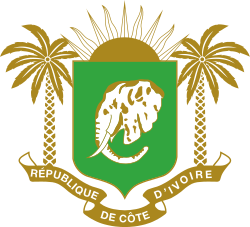 |
|---|
Parliamentary elections were held in Ivory Coast on 26 November 1995. Ten parties and a number of independents contested the election, with the Rally of the Republicans and the Ivorian Popular Front running under the Republican Front banner. [1] The result was a victory for the ruling Democratic Party of Ivory Coast – African Democratic Rally (PDCI-RDA), which won 148 of the 175 seats. [2]
The results in seven constituencies were annulled following the election, and reruns held on 27 December. As a result, the PDCI-RDA increased its number of seats to 150, whilst the opposition were reduced to 25. [1]
